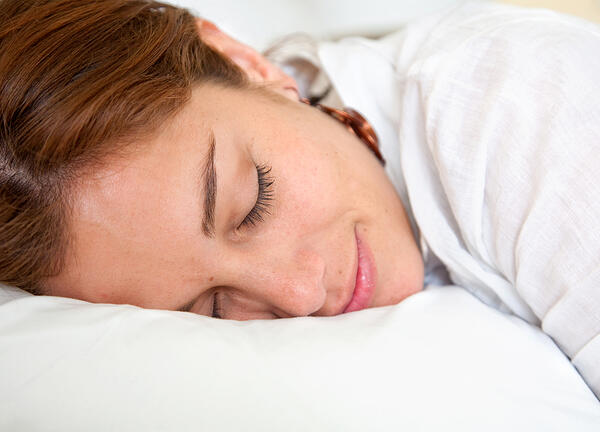
“Do you skip your sleep to reach the target date of your office work?” Or “you don’t get enough sleep because you are a busy house-maker?”
Well, you may have many excuses for not getting proper periods of sleep, but no one can deny the fact that quality sleep affects our physical and mental health. According to experts, adults need 7 to 9 hours of sleep every night.
You may wonder if your total sleeping hours matter and if each stage of your sleep has great value. For a comprehensive understanding of how each stage differs from the other, let’s get into it.
What Are The Stages Of Sleep?
On a typical night, we don’t sleep uniformly. Our sleep consists of several stages, which are divided into two categories: NREM (non-rapid eye movement and REM (rapid eye movement).
On the whole, a person goes through four sleeping stages every night. Each stage has a different length, but normally they last for about 90 minutes.
REM and NREM periods of sleep are essential, but our muscles relax more in REM sleep, so it’s important to know how to get more REM sleep and how much each stage of sleep is needed.
Note: The first three stages are NREM, while the last stage of sleep is REM.
Stage 1:
The first NREM stage lasts for five to ten minutes. When this stage initiates, your eye movement slows down; that’s why it is called the non-rapid eye movement stage. You shift from awakening to sleep mood, and your muscles start relaxing.
Stage 2:
After the first stage, you immediately drift into the next stage, which is a light sleep stage. In this stage, eye movement stops. Moreover, your heart rate slows down, and your temperature drops. Now you are ready to enter into a deep sleep.
Stage 3:
Now you are twitching into a deep sleep, and it’s hard to wake you up. The brain generates delta waves during this stage. Your eye movement and muscle activity completely stop. Additionally, you feel disoriented when woken up.
Stage 4:
Now here comes the stage when you dream. Although this is the deepest sleep, your brain works intensively, and the irises of the eye move rapidly. Our body is inactive, but the heartbeat is faster during this stage.
Continue reading to know how much sleep for each stage is needed for us.
How Much Deep Sleep Is Required For A Healthy Body
Undoubtedly you are aware of the importance of zizz in your life. From your whole night’s sleep, 13% to 23% of the time must be spent in deep sleep. You experience 55 to 97 minutes of deep sleep if you take seven hours of snooze. In addition to the formation of memory, deep sleep eliminates harmful wastes from our brains.
Deep sleep is necessary as it heals wounds and builds muscle tissues. You feel discomfort when you don’t get sufficient deep sleep.
How Much Is Rem Sleep Required?
If you want your body to process perfectly, you need to take 20-25% of REM sleep, which is 90 minutes from your 7-8 hours of sleep. Babies and children get more REM sleep than adults. In this stage, we become paralyzed, so we can’t act on our dreams.
On top of that, REM sleep helps in learning and retaining memories. You can never neglect REM sleep as it causes sleep deprivation, leading to Type 2 Diabetes, Obesity, and dementia.
How Much Is Light Sleep Essential For Us?
You can never switch to other stages of sleep without crossing light sleep. It takes 40-50% of the sleep. It is right that experts recommend getting proper deep and REM sleep, but we can’t disregard the importance of light sleep.
After going through complete guidelines of sleep, let’s consider some sleep disorders.
Is It Dangerous Not To Get Enough Sleep?
If you use the internet and spend sleepless nights, then you should carry on reading to acknowledge yourself about sleeping disorders.
If you don’t get expert-recommended sleep, there is a high chance that you face sleeping disorders like Insomnia, Sleep apnea, Restless legs syndrome, Narcolepsy, and others. Not only these disorders but some diseases as well.
Additionally, sleep deprivation can affect your daily life performance and concentration at work.
Final Words
What have you learned then? Yes, it is fun to be awakened all night, but this is not a good option as deep, and REM sleep plays a vital role in keeping your brain and body healthy.
During deep sleep, your immune system functioning gets better, while REM sleep develops your brain. Besides this, light sleep helps you snooze so that you can take your REM and deep sleep properly.
You must talk to your doctor if you are facing difficulty in sleeping. They can better advise you on solutions.
f you would like to speak to a sleep specialist about the benefits of napping, or if you believe you have a more serious sleep disorder, contact The Alaska Sleep Clinic @ 907-357-6700 for a free consultation.









